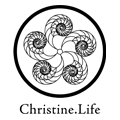
Vitamin B7, Vitamin H
Health Benefits
Biotin is a water soluble “B Group” vitamin aiding in cell growth, working as a coenzyme in fatty acid production, metabolism of carbohydrates, proteins, fats and the utilisation of the other B Group vitamins.
Biotin can be synthesised within the body by Beneficial Bacteria within the digestive tract (gut). Biotin is essential for healthy skin and hair and nails and neurological symptoms such as depression.
Biotin is beneficial for treating dermatitis, dry scaly skin and scalp, seborrheic dermatitis (cradle cap), hair loss, baldness and alopecia. A red, scaly rash which may be found around the eyes, nose, and mouth can be a sign of Biotin deficiency.
Therapeutic Uses
Anorexia nervosa, anemia, depression, confusion, nervousness, dementia, inflammation, nausea, soreness of the tongue, dry skin, acne, burns, eczema, dermatitis, dandruff, hair loss (alopecia), grey hair, conjunctivitis, endometriosis, pregnancy, lactation, fatigue, blood sugar, diabetes, diabetic peripheral neuropathy, alcoholism, epileptics, leg cramps, nausea, vomiting, aging, athletes, lethargy, hallucinations, numb or tingling sensations in the arms and legs.
Antagonists: Antibiotics, refined foods, mineral oils and raw egg white (avidin is a glycoprotein found in raw egg and it binds with biotin in the stomach decreasing the absorption), saccharin, sucrose, caffeine, alcohol, epileptic drugs, sulpha drugs.
Dietary Sources
Fruits
- Apples
- Bananas
- Dates
Dried Fruits
- Currants
- Dates
Starch Foods
- Whole grains
- Barley
- Brown rice
- Oats
- Rice bran
- Soybeans
- Lentils
- Split peas
- Corn
Vegetables
- Green leafy veggies
- Avocados
- Mushrooms
- Cauliflower
- Corn
- Alfalfa
- Bean sprouts
- Broccoli
Protein Foods
- Sesame seeds
- Sunflower seeds
- Almonds
- Pecans
- Walnuts
- Peanuts (roasted)
- Hazelnuts
- Pistachio nuts
- Milk
- Goat's milk
- Camembert cheese
- Egg yolk
- Fish
- Salmon
- Tuna
- Mackerel
- Cod
- Haddock
- Halibut
- Crayfish
- Meat
- Beef
Hebal Source
- Alfalfa
- Ginsengs
- Chickweed
- Dandelion
- Goldenseal
Other
- Yeast spread
- Brewer’s yeast
- Sun dried tomatoes
A Guide to Vitamins Found Naturally in Food
Categories
- Allergies
- Blood Sugar Maintenance
- Cardiovascular Health
- Children’s Health
- Cognitive Health
- Dental Health
- Digestive Health
- Ear Health
- Eye Health
- Hair Health
- Immune System
- Joint Health & Musculoskeletal
- Kidney & Bladder Health
- Liver & Detoxification Support
- Men’s Health
- Mental Health
- Food
- Nail Health
- Nervous System
- Other Conditions
- Pregnancy Health
- Reproductive Health
- Respiratory Health
- Skin Health
- Women's Health
Highlighted

Anxiety

Birth – Labour

Immune Booster

